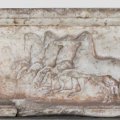Australian space engineer Professor Ray Stalker will be inducted as a Fellow of the American Institute of Aeronautics and Astronautics (AIAA). Professor Stalker, of The University of Queensland Department of Mechanical Engineering, will be the only Australian fellow of the AIAA and joins the ranks of esteemed space engineers from organisations such as NASA, Boeing and Lockheed.
During a career distinguished by a plethora of awards, Professor Stalker has developed technologies and testing facilities for hypersonic flight and scramjet engines. He has led The University of Queensland's space engineering program for the past two decades. His reputation for high-quality research and innovative ideas were a factor in encouraging NASA collaboration in the fledgling Australian space program.
"As a child, I was fascinated with the prospect of travelling into space and to other planets," Professor Stalker said.
His childhood dream led him to follow a career in the emerging space engineering industry and he is still passionate about further advances.
"I am most interested in space planes. If they come good, it will change the world."
In the early 1960s, Professor Stalker designed the first high-performance shock tubes, used for testing aircraft technology and aerodynamics at supersonic speeds. His model became a prototype for similar tubes around the world, with the Brisbane-based engineering firm WBM Stalker, of which he was Director, earning millions of export dollars for Australia.
Professor Stalker has guided his department through the refinement and redevelopment of a series of shock tubes, known around the world as "Stalker tubes".
His skills and facilities, especially the T4 shock tunnel, are in great demand by groups such as the aerospace agencies NASA, DERA (British) and DLR (German).
Despite the significance of his election to the AIAA, Professor Stalker remains modest about his achievements.
"The international stature of the group is the reason I got the fellowship," Professor Stalker insists. He is quick to commend his co-researchers and students, giving them most of the credit for developing the group's international reputation.
Professor Stalker will be recognised by the American Institute of Aeronautics and Astronautics at their Honours Night Banquet in Arlington, Virginia, USA in May 2001. He is also a Fellow the Australian Academy of Science, the Australian Academy of Technological Sciences and Engineering and the Institution of Engineers, Australia.
Australian professional bodies have been quick to congratulate Professor Stalker on his award. In typical fashion, he deflects praise for himself on to his research group.
"It gives me great pleasure to see the efforts of the research group recognised in this way."
For more information or interviews with Professor Stalker contact David Harris at UQ Communications (telephone 07 3365 1120, mobile 0411 528 055)
.jpg)











